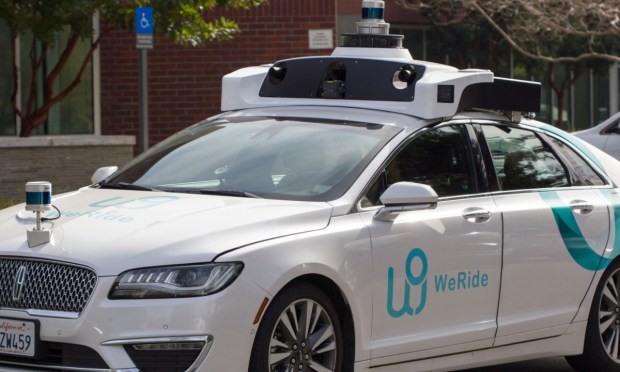
WeRide, a Chinese autonomous driving startup, is planning to go public in the U.S.
The company filed for an initial public offering (IPO) with the Securities and Exchange Commission (SEC) on Friday (July 26).
WeRide said in that filing that it could face “various legal and operational risks and uncertainties” tied to the People’s Republic of China (PRC).
“For example, we face risks associated with the fact that the PRC government has significant authority in regulating our operations and may influence or intervene in our operations at any time, regulatory approvals on offerings conducted overseas by, and foreign investment in, China-based issuers, anti-monopoly regulatory actions and oversight on data security,” the SEC filing said.
The filing also noted that WeRide losses of $268 million last year, with $55 million in revenue.
According to a report by Bloomberg News, this IPO could be the largest public listing for a Chinese company since Didi Global’s in 2021. Bloomberg had reported last year that WeRide had filed confidentially for an IPO with a plan to raise up to $500 million.
Didi’s listing, that report noted, led to a crackdown by Beijing on companies with sensitive data selling shares overseas. From there, U.S. listings by China-based companies faded away.
WeRide’s IPO plans come at a moment when — as PYMNTS wrote last week — the rise of artificial intelligence (AI) has observers “wondering just when self-driving, autonomous vehicles will be a scalable, real-world reality.”
This was days after Alphabet announced in its quarterly materials and earnings call that it was investing an additional $5 billion in Waymo, its autonomous-driving business, which has yet to turn a profit.
Also last week, General Motors said it was “indefinitely suspending” work on Origin, the autonomous vehicle produced by GM’s self-driving subsidiary Cruise.
Cruise’s driverless taxi product, for its part, has restarted test operations in Dallas, Houston and Phoenix, the company said during its most recent earnings call, adding that the service is in a testing phase only and will not be immediately available to customers.
“While the potential benefits of autonomous vehicles are substantial, their widespread adoption also presents challenges,” PYMNTS wrote.
“These include regulatory hurdles, cybersecurity risks and the potential displacement of jobs in sectors such as trucking and logistics. Ensuring the safety and reliability of AVs is paramount, particularly in mixed-traffic environments where human drivers and autonomous vehicles must coexist.”